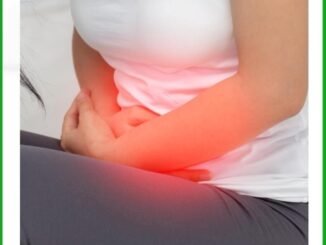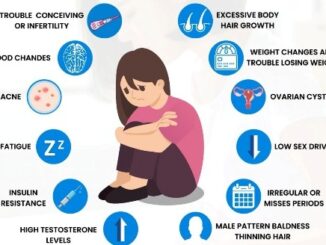
PCOS and PCOD:
Polycystic Ovary Syndrome (PCOS) and Polycystic Ovary Disease (PCOD) are common endocrine disorders affecting women. In Naturopathy and Ayurveda, a holistic approach is adopted to address these conditions by focusing on the root causes and promoting overall well-being.
Understanding PCOS and PCOD:
PCOS and PCOD involve hormonal imbalances, leading to irregular menstrual cycles, ovarian cysts, and various symptoms. While PCOS is often associated with symptoms like acne, weight gain, and excessive hair growth, PCOD primarily refers to the presence of multiple cysts on the ovaries.
What is PCOD?
All women have two ovaries that release an egg alternately every month. The ovaries produce male hormones (androgens) in minute quantities. PCOD (Polycystic Ovarian Disease) is a condition where the ovaries release a lot of immature or partially-mature eggs which eventually turn into cysts. This type of cysts may be multiple also in the ovaries. The size of the ovary is enlarged and leads to excessive production of estrogen and androgen hormones. Causes of the PCOD are excess insulin, low-grade inflammation, more production of male hormones, and genetics.
Some of the common symptoms are giving below and the best treatment for PCOD often looks at reducing the severity of such symptoms.
Symptoms of PCOD:
Some common symptoms of PCOD are
- Heavy bleeding.
- Irregular periods, occurring every 2 to 3 months
- Unusual body and facial hair growth
- Stubborn acne that refuses to heal with the usual treatments.
- Uncontrolled weight gain around the waist area.
- Pigmentation or darkening of the skin around the neck region.
- Infertility
- Headaches
- Male – pattern baldness.
What is PCOS?
PCOS (Polycystic Ovary Syndrome) is a major ailment in young women in India. It is due to ovaries produce higher levels of androgen than usual, which interferes with the development and release of the eggs. Some of the eggs transform cysts that are the limited sacs full of liquid. Rather than being discharged throughout biological process, these cysts build up within the ovaries and occasionally even get enlarged.
Symptoms of PCOS:
PCOS manifests with irregular periods, excessive hair growth, acne, and weight gain. Women may experience fertility issues and develop cysts on their ovaries. Hormonal imbalances contribute to mood swings and fatigue. Detecting these symptoms early allows for effective holistic management through naturopathy and Ayurveda, emphasizing lifestyle changes and natural remedies to restore hormonal harmony and improve overall health.
Difference between PCOD and PCOS
Now a day, PCOD (Polycystic Ovarian Disease) is common in young women at the age of 18 to 45 years. It happens due to more secretion of androgens or male hormones. These hormones are converted into cysts. PCOS is the hormone imbalance due to the endocrine system.
Nature of the condition:
PCOS is a serious condition because of hormonal change. PCOD is not considered to be truly a disease since with the right diet and exercise, it can be managed. On the other hand, PCOS is a metabolic disorder due to the endocrine system.
1. Reasons of PCOD:
Polycystic Ovary Syndrome is a disorder of the endocrine system, while PCOD is a condition developed by the imbalance of hormones. It is believed that hormonal imbalances, lifestyle change, and genetics play an essential role in both conditions. The theory is that high levels of male hormones prevent ovaries from producing hormones and producing eggs normally. Insulin resistance and inflammation have also been linked to excess androgen production.
2. Occurrence of PCOD:
PCOD is more common in comparison. Almost one-third of women around the globe suffer from Polycystic Ovarian Disease. Polycystic Ovary Syndrome has a lower number of patients.
3. Impact of PCOD & PCOS on pregnancy:
Polycystic Ovarian Disease does not lead to infertility in all women and shouldn’t be considered an obstacle towards pregnancy. In about 80 percent of cases, women can possibly conceive with a little aid and experience a smooth pregnancy. For women with PCOS, conception can be a challenge due to the hormonal irregularities. To conceive, one ought to have balanced secretion cycles that may produce associate degree atmosphere for the egg cell to unleash and infuse with the spermatozoon post-intercourse. Since the levels of androgens in Polycystic Ovary Syndrome are very high, if one falls under the syndrome, conception can become a bit of a challenge.
Maintaining good health is essential to prevent as well as treat hormonal disturbances and conditions. The best treatment for PCOS and PCOD will include timely diagnosis and the appropriate steps that can help overcome the syndrome and make the journey towards conception a success.
Naturopathic and Ayurvedic Approaches:
-
Dietary Modifications:
- Naturopathy emphasizes the significance of a balanced and nutritious diet. Ayurveda, too, suggests a diet that aligns with an individual’s dosha (biological energy).
- Including whole grains, fresh fruits, vegetables, and lean proteins is recommended. Anti-inflammatory foods can be beneficial.
-
Lifestyle Changes:
- Regular exercise plays a crucial role in managing PCOS and PCOD. Naturopathy encourages activities like yoga, which helps balance hormones and improve overall health.
- Stress management techniques are vital. Ayurveda highlights the importance of a sattvic lifestyle to maintain equilibrium.
-
Herbal Remedies:
- Ayurveda employs various herbs to address hormonal imbalances. Herbs like Ashwagandha, Shatavari, and Turmeric are known for their adaptogenic and anti-inflammatory properties.
- Naturopathy utilizes herbal treatments and may include therapies like hydrotherapy for their therapeutic benefits.
-
Detoxification:
- Naturopathy focuses on detoxifying the body to eliminate accumulated toxins. This may involve methods like fasting, enemas, or specialized diets.
- Ayurveda incorporates Panchakarma, a detoxification process that aims to balance doshas and purify the body.
-
Yoga and Pranayama:
- Both Naturopathy and Ayurveda place importance on yoga and pranayama (breath control exercises). These practices enhance circulation, reduce stress, and promote hormonal balance.
- Specific yoga asanas are recommended for individuals with PCOS or PCOD to address related symptoms.
Naturopathy Treatment of PCOD:
- Hip Bath
- Mud pack on the abdomen and lower abdomen
- Hot and cold fomentation, Steam Bath, Enema
- Asanas – Shalabhasanas, Manduk Asanas, Pavanmuktasanas
- Pranayam – Anulom vilom, Kapalbhati, Ujjayi Pranayam, deep breathing, yoga or start any light exercise.
- Morning walk is very effective
- Sprouted food
- Use seasonable vegetables & Fruits and vegetable juice
- Low fat and high protein diet.
- High Nutritional and anti-oxidant diet.
Note: Before taking the treatment consults with the Naturopathy Doctor or Naturopathy Physician.
Conclusion:
Naturopathy and Ayurveda offer comprehensive solutions for managing PCOS and PCOD by addressing underlying imbalances in the body. The focus is on personalized care, incorporating dietary changes, lifestyle modifications, herbal remedies, and holistic practices. Embracing these natural approaches can contribute to improved hormonal health and overall well-being. It is advisable to consult qualified practitioners for personalized guidance and treatment plans based on individual needs.




Provided knowledge is very effective and help to prevent and cure from pcos, pcod other uterus ailments.
http://www.yuvannaturoayus.com
Good and useful information